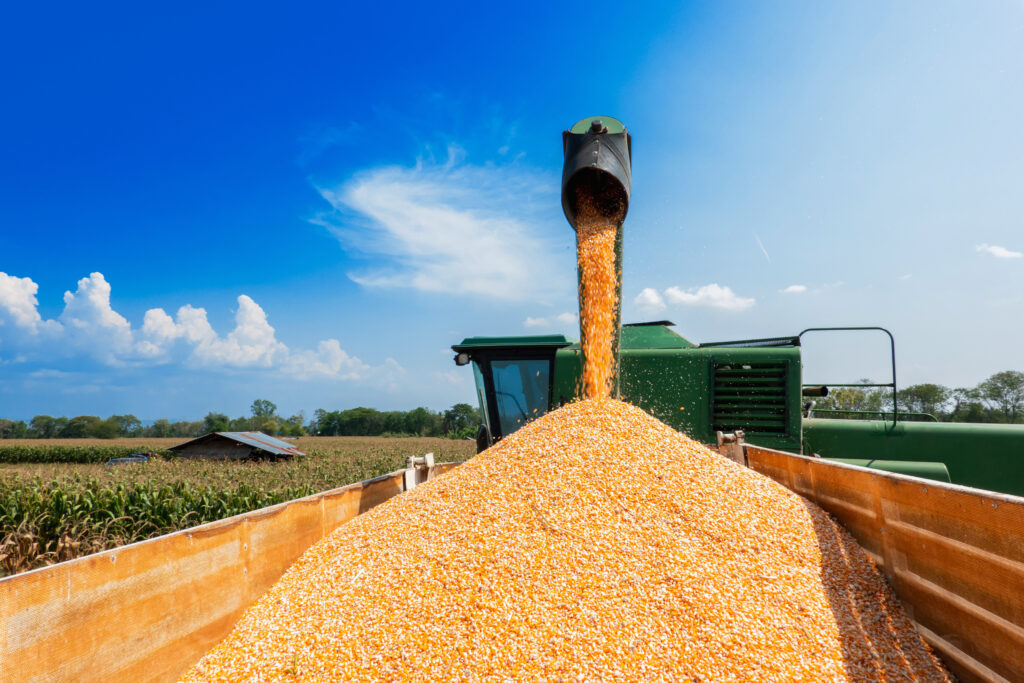Environmental Research Supports Evidence-Based Decisions: The Case for Challenging Corn Ethanol’s Prevailing Carbon Intensity Value


An innovative U.S. producer of corn ethanol, the primary renewable fuel used in transportation, was looking to leverage the latest science and data to further characterize corn ethanol’s greenhouse gas (GHG) emission intensity (sometimes known as carbon intensity, or CI). However, there was a 10-year gap in the scientific literature during which time advances in farming practices, ethanol refining, and analysis of land use change had only been documented in government reports and other specialty literature.
The producer sought to fill this critical information gap and, in the process, update to the extent supported by the latest science – the conventional wisdom of many scientists and policymakers that corn ethanol’s GHG impact was only 20% lower than gasoline. Findings could then be used to facilitate communications on advancements in biofuel production as well as inform policy and market decisions on state, national, and international levels.
EH&E was selected to undertake the necessary research because of our earned reputation for rigorous analysis and objective reporting. In addition, we have under one roof a multidisciplinary team of environmental health scientists and engineers with expertise in measurements, models, data science, life cycle analysis, and energy utilization.
EH&E has strong affiliations with leading research universities including Harvard, MIT, and Tufts. This combined with our ability to collaborate effectively with leading researchers in life cycle analyses for biofuels as well as climate science and policy, gave the client peace of mind that it would harness expertise from leading biofuel and GHG analysts in academia, government, and NGOs.
In accord with the most credible scientific evidence, EH&E conducted a transparent, state-of-the-science independent assessment on the carbon intensity of corn starch ethanol produced in the U.S. The results were compared to that of gasoline refined from crude oil. The research involved a critical review of earlier life cycle analysis modeling and data, and consulting with more than two dozen experts from government, academia, and nonprofits.
EH&E’s findings showed that corn ethanol is less carbon intensive and more climate-favorable than previously thought. According to the data, GHG emissions for corn ethanol are 46% lower than gasoline – indeed remarkably different than the conventional wisdom of only 20%. The decreased carbon intensity was attributed to advances in farming technology, soil conservation practices, production of animal feed as a by-product of making ethanol, and modeling of land use change impacts. These findings were subsequently published in a peer-reviewed journal and presented to the U.S. Environmental Protection Agency, U.S. Department of Agriculture, California Air Resources Board, Congressional staffers, farmers, ethanol producers, and international trade organizations.
The results of this research were timely for the client and the scientific, public health, legislative, and business communities seeking to establish a net zero carbon economy while addressing related technological, political, and economic challenges. Importantly, corn ethanol is now widely recognized to offer significantly greater climate benefits over petroleum-based gasoline than ever before.
Today, corn ethanol accounts for about 10% of liquid fuel sold at gasoline stations in the U.S. and has the potential to account for a greater share of liquid fuel for transportation. Hence, these findings provide much-needed data for decisions and policies on the future role of biofuels and other types of renewable energy to decarbonize our economy and address the warming planet quickly as well as opportunities for continued reduction of carbon emissions across the life cycle of corn ethanol.